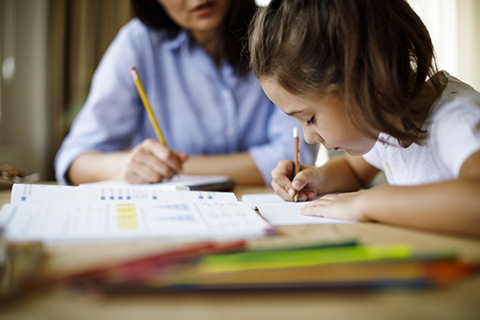Childhood dyslexia is a learning disorder that affects children’s school performance and self-esteem.
Dyslexia is part of the literacy learning disabilities. It is the difficulty to read and write. It is generated by problems identifying sounds when speaking and understanding how sounds are linked to letters and words. For this reason, it is also known as reading difficulty because it damages the areas of the brain that are responsible for language.
This disorder can appear at any time in a person’s life, during the school years or in adulthood. Sometimes this disorder goes undetected in children, and they still perform satisfactorily in school. However, it is crucial to evaluate them early in order to intervene as soon as possible and obtain better results.
It is important to note that dyslexia persists over time, i.e., there is no cure, but children with dyslexia can succeed in school with the help of a special school program and a tutor. Emotional support is also very important.
Causes and symptoms of childhood dyslexia
It has been determined that one of the causative factors of this disorder is hereditary. There are genes that establish the way the brain processes language and reading.
In an article published in Current opinion in pediatrics, it is pointed out that there are genes that are associated with individual differences in reading. However, the literacy environment at home is more decisive. Therefore, the existence of a family member with this disorder is a factor that increases the chances of suffering from it.
Symptoms
The symptoms of this disorder manifest themselves in different ways and their intensity depends on the age of the child. The functions that are affected are motor, vocabulary, memory, perception, and speech. It is complicated to detect symptoms in the first years of life due to the fact that it is a learning disorder of neurobiological origin.
Some of the symptoms in the preschool stage are difficulty learning and forming new words, learning nursery rhymes, and difficulty learning spatial notions; confusing words that look alike, reversing the sounds of words, etc. School-age symptoms: poor reading comprehension, trouble spelling, difficulty picking up similarities and differences between words, irregular, very large or small spelling, etc.
Therefore, it is important to detect this problem in children at an early age, so that it does not affect their educational performance or self-esteem.
Finally, the Universidad Internacional Iberoamericana (International Iberoamerican University) (UNIB) offers the Master in Education with a specialty in the Organization and Management of Education Centers.

